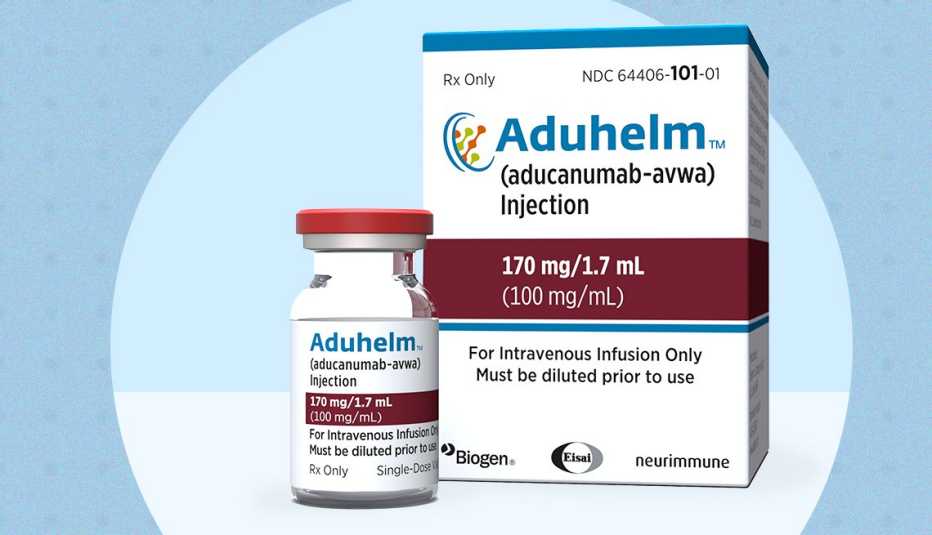AARP Hearing Center


Drugmaker Biogen has announced that it plans to stop selling Aduhelm, an Alzheimer’s treatment that received a fast-tracked approval from the Food and Drug Administration (FDA) in 2021. The company will also end its clinical trial testing the drug, which was required for full FDA approval.
Biogen says the decision to discontinue Aduhelm “is not related to any safety or efficacy concerns.” Rather, it plans to “reprioritize its resources” and “further advance the launch of Leqembi,” another Alzheimer’s medication from Biogen and Eisai that received full FDA approval in July.
Aduhelm was a first-of-its-kind Alzheimer’s medication that aimed to slow the progression of the disease, not just treat its symptoms. The FDA granted the monoclonal antibody accelerated approval based on evidence that it reduced the buildup of amyloid plaques in the brain and the reasonable likelihood that this reduction could benefit patients.
Amyloid plaques disrupt brain cell function and are a hallmark of Alzheimer’s disease, the most common type of dementia, which affects an estimated 6.7 million older Americans.
Usage of the intravenous drug following its approval was limited. Several major hospitals announced they would not prescribe the pricey medication, based on the available evidence, and Medicare restricted its coverage to clinical trial participants.
A spokesperson for Biogen says that approximately 2,500 people worldwide are being treated with Aduhelm, either through commercial, clinical or global access programs.
Focus shifts to Leqembi, other dementia drugs
Leqembi, another monoclonal antibody, also works by clearing amyloid plaques. In clinical trials the medication slowed the rate of cognitive decline — or the loss of thinking and memory skills — in people with early to mild Alzheimer’s disease by 27 percent over an 18-month period.
Doctors are still trying to determine what, exactly, this means for patients living with the disease. With its full FDA approval, Medicare is covering Leqembi for most patients.
Another anti-amyloid therapy, called donanemab, could receive FDA approval this year. Like Leqembi, this medication slowed the rate of cognitive decline in study participants.
“When searching for new medicines, one breakthrough can be the foundation that triggers future medicines to be developed. ADUHELM was that groundbreaking discovery that paved the way for a new class of drugs and reinvigorated investments in the field,” Christopher A. Viehbacher, president and chief executive of Biogen, said in a statement.
Researchers are exploring other treatments for Alzheimer’s, too, as many experts predict it will take more than one medication to tackle the disease. Some of these experimental drugs target tau, another key component of Alzheimer’s disease, as well as inflammation and metabolism.
In a statement, the Alzheimer’s Association said it “recommends that people receiving Aduhelm through a clinical trial or by prescription, and their families, should connect with their study contact and/or their personal health care provider to talk through how these changes will impact their treatment and care.”



































































More on Brain Health
Brain Health Resource Center
Find explainers on diseases of the brain plus healthy habits to support memory and mental skills
A Blood Test for Alzheimer’s Disease?
Dementia experts say we’re getting closerWhat Dementia Feels Like
Individuals detail their symptoms in the early stages
Recommended for You